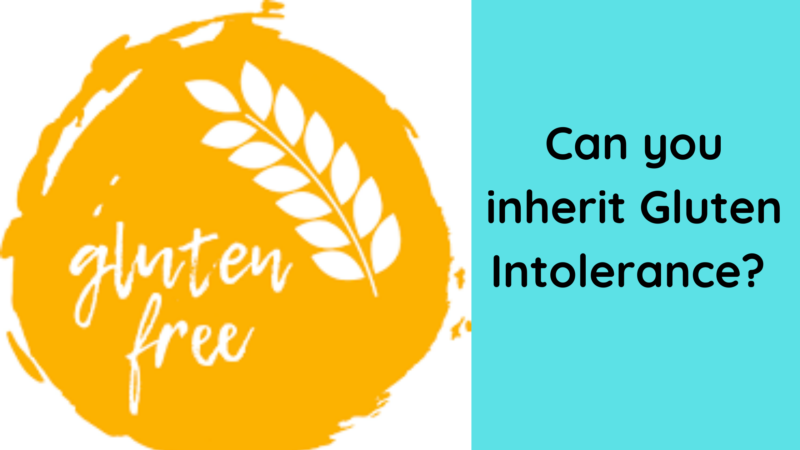We have discussed gluten in our earlier blog. Before discussing whether gluten intolerance is a result of our genes or not, let us discuss briefly about gluten. Gluten is a protein naturally found in grains such as wheat, rye, barley & spelt. It acts as a binder which holds food together & adds a stretching quality. Gluten is usually associated with wheat & wheat containing foods that are abundant in food supply. However, most of us have doubts about its place in a healthy diet. Gluten creates problems in case of certain individuals. In some cases, the body recognises Gluten as toxin & immune cell overreacts & attacks it. The impact of consuming more gluten on a gluten sensitive person varies from mild issues such as constipation, diarrhea to severe concerns such as weight loss, malnutrition, intestinal damage as seen in celiac disease. However, a gluten-free diet (removing gluten from the diet) can undo the damage. Adopting a gluten free diet is not a trivial task since it is necessary to ensure that you get required nutrients from a gluten free diet.
In the current scenario, there is buzz word everywhere about gluten free foods right from food labels to health blogs. Celiac disease is the most dreaded outcome of consuming gluten filled foods for those sensitive to gluten. It is estimated that Celiac disease is said to impact 3 million people. Besides, the prevalence of undiagnosed Celiac disease has increased exponentially over the last 50 years. It is important to note here that neither gluten sensitivity nor celiac disease are the result of food allergies but are two different concerns. Celiac disease is an autoimmune disorder of the small bowel which can cause similar side effects but can even go to extreme levels that can lead to death.
Given that side effects of Gluten sensitivity & celiac disease are not the same for everyone, both go undiagnosed for years. So why do we have obscure knowledge about gluten. Most doctors & scientists attribute increase in gluten-sensitivity due to environmental & food changes with assumptions such as:
- New wheat varieties have higher gluten content
- Farmers are using wheat with higher gluten quantities because of their natural insecticide qualities.
- Consumption of wheat based products have increased dramatically over the years.
Do we have a gluten gene?
Based on some research, scientists believe that because some people of European descent carry genes for celiac disease, there is high risk of health issues associated with consuming a high gluten diet. Celiac disease is hereditary & can be passed from generation to generation. According to a recent study, there is 5% chance of being diagnosed with a celiac disease if a family member is diagnosed for the same. Around 35% to 40% of the total population has celiac disease genes-HLA DQ2 or HLA DQ8. Every person gets one copy of the HLA DQ gene from mother & a second one from their father. There are four types of HLA DQ genes.These genes are further broken down resulting in many gene combinations. Depending upon the 2 copies of HLA DQ you get, you either will be prone to Celiac disease or experience no intolerance to gluten. However having a particular gene does not mean that you will develop celiac disease.
Such gene combinations include:
- People who have only HLA DQ8 are very less likely to have a disease as compared to those who only have HLA DQ2.
- People who have both HLA DQ2 & HLA DQ8 do not appear to have greater risk of Celiac disease than those who only have HLA DQ2
- People who have both HLA DQ2 & HLA DQ8 are more likely to have greater risk of Celiac disease than those who only have HLA DQ8
- If you have HLA DQA1 & HLA DQB1, it means you have predisposition to gluten sensitivity & even may have celiac disease
The truth about gluten
While more people are discussing gluten, it does not mean that they are becoming gluten sensitive. As we learn more about genetic impact on gluten intolerance, more people are undergoing genetic testing & figuring out gluten free diets. You should also evaluate the health impact of a gluten free diet since a lot of gluten-free products are higher in sugar, fat, sodium, and calories to make up for the lack of gluten and improve the flavor and texture.
Although there has been a lot of research on celiac disease & genetics around it for more than 5 decades, most people still do not realise if they are predisposed to gluten intolerance. By knowing your family history & personal genomics, it can be measurable. Therefore getting genetic testing with us can help you learn whether you carry gluten genes. Based on gene testing insights, we can structure & deliver personalised nutrition & workout plans for you through our international accredited fitness coaches. Sign up for our fitness program here.


Leave a Reply